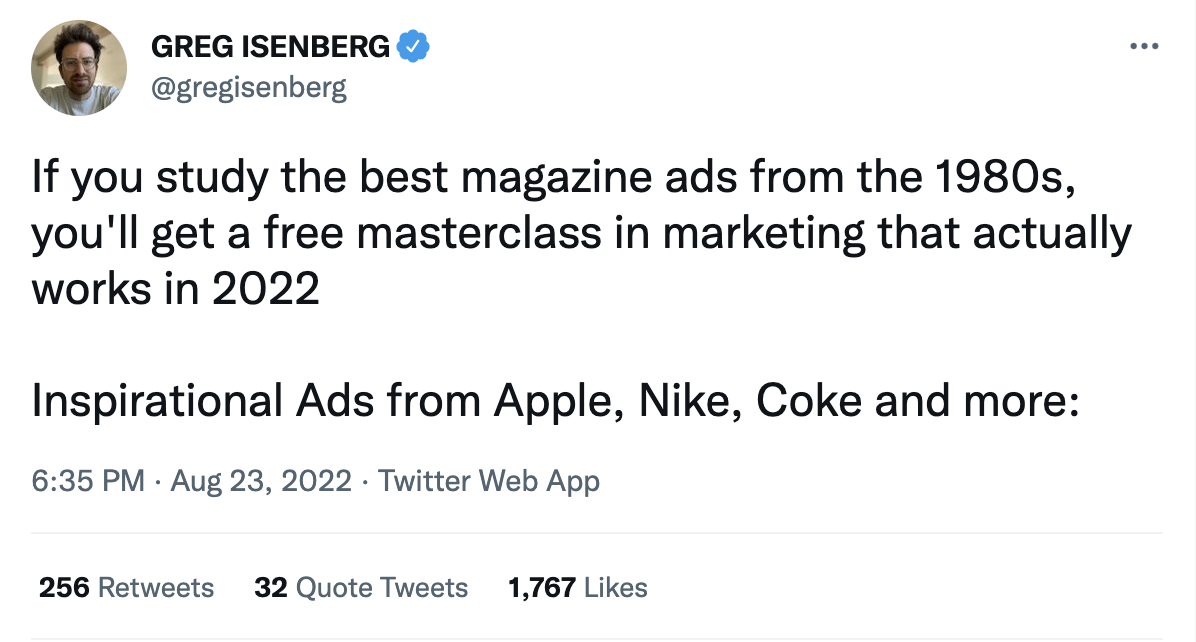Hi there,
All of us pride ourselves on our discerning good tastes. Of course, we can tell a good earthy Bordeaux from an $8 wine and spot the telltale signs of a Tarantino film – right? Nah.
It was 7.51 AM on a Friday at the L’Enfant Plaza Metro Station in DC. There was a nondescript white man in a long-sleeved t-shirt and jeans who pulled out a violin and started playing. As the violinist performed six classical pieces over the next 43 minutes, 1097 people passed him by; 27 gave him money, and only seven paused to listen. He earned $32.17.
That street musician was Joshua Bell, one of the world’s most prodigious violinists who regularly sells concert halls with tickets costing $300 or more. He was playing masterpieces whose brilliance has echoed over the centuries reverberating through cathedrals and concert halls on a violin handcrafted in 1713 that cost him $3.5 million(!)
Now, wait, we shouldn’t rush to judge DC as a city of unsophisticated neanderthals. Selle katse viis läbi The Washington Post toob esile olulise õppetunni: kontekst on oluline.
Maailmas, mis on täis Joshua Bellsi ja Phoebe Buffaysid, toetume kontekstile, et öelda meile, kellele tähelepanu pöörata ja keda eirata. Konteksti vihjed kujundavad meie iga toote või teenuse tajutavat väärtust.
“If you’re a baker making bread, and you make the best bread in the world, you’re still a baker. But you’re an artist if you bake the bread in a gallery. So context makes all the difference.” – Marina Abramovic.
Kui tarbijaid pommitatakse iga päev pidevalt uute toodetega, võib teie pakkumise paigutamine ideaalsesse võrdlusraamistikku tähendada erinevust 32.17 dollari ja väljamüüdud kontserdisaalide vahel.
Mida me lugesime
Eugene Wei, kes on juhtinud toodet Hulus ja videot Oculuse jaoks Facebookis, jagab oma Tiktoki analüüsi kolmeosalises esseesarjas. Esimene räägib sellest, kuidas Tiktoki tõus avaldab olulist mõju arendajate arusaam tooteturu sobivusest ja piiriülese tehnoloogilise konkurentsi tulevikust.
Zack Kanter, the founder of Stedi, understands how Amazon works better than most. His thesis is that it’s a perpetual motion machine that innovates by discovering what works and amplifying the highest leverage experiments — evolutsioon päriselus.
"Niitide" usside jaoks

- SEO-põhise sisu ja PR-levi. Võimenduge juba täna.
- Platoblockchain. Web3 metaversiooni intelligentsus. Täiustatud teadmised. Juurdepääs siia.
- Allikas: https://www.chargebee.com/newsletter/is-context-more-important-than-objective-value/
- $3
- 7
- a
- MEIST
- Materjal: BPA ja flataatide vaba plastik
- Amazon
- võimendades
- analüüs
- ja
- kunstnik
- tähelepanu
- Kell
- kellad
- BEST
- Parem
- vahel
- Leib
- puruneb
- Linn
- kontsert
- pidevalt
- Tarbijad
- kontekst
- Maksma
- kursus
- piiriülese
- otsustav
- päev
- dc
- erinevus
- avastades
- alla
- teenitud
- ESNA
- Eeter (ETH)
- Iga
- iga päev
- eksperiment
- Film
- esimene
- sobima
- Asutaja
- FRAME
- Reede
- Alates
- täis
- tulevik
- Galerii
- hea
- siin
- kõrgeim
- rõhutab
- Kuidas
- HTML
- HTTPS
- Hulu
- ideaalne
- mõjud
- in
- IT
- kohtunik
- Led
- õppetund
- Finantsvõimendus
- elu
- masin
- tegema
- TEEB
- Tegemine
- mees
- meistriteosed
- Oluline
- Metro
- protokoll
- raha
- rohkem
- kõige
- liikumine
- Muusik
- Neandertallased
- Uus
- uute toodete
- järgmine
- eesmärk
- Oculus
- pakkumine
- ONE
- osa
- Vastu võetud
- Maksma
- Inimesed
- tajutav
- Alatine
- tükki
- Platon
- Platoni andmete intelligentsus
- PlatoData
- mängimine
- positsioneerimine
- uhkus
- Toode
- Toodet
- RE
- reaalne
- päris elu
- regulaarselt
- lootma
- Tõusma
- kiirustama
- Müüb
- Seeria
- teenus
- seitse
- kuju
- märkimisväärne
- Märgid
- SIX
- So
- Kaubandus-
- alustatud
- jaam
- Veel
- tänav
- Läbirääkimised
- Tarantino
- tech
- .
- Tulevik
- maailm
- Läbi
- piletid
- tikk-takk
- et
- tõlkima
- puperdama
- mõistmine
- mõistab
- us
- väärtus
- Video
- ootama
- Washington
- M
- valge
- WHO
- Vein
- töötab
- maailm
- Sinu
- sephyrnet











